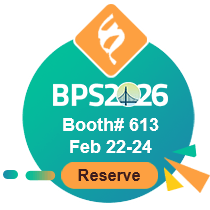Recombinant Cynomolgus CD38 cell lysate
| Cat.No. : | CD38-1398CCL |
| Product Overview : | Cynomolgus CD38 derived in Human Cells. The whole cell lysate is provided in 1X Sample Buffer.Browse all transfected cell lysate positive controls |
- Specification
- Gene Information
- Related Products
- Download
| Species : | Cynomolgus |
| Source : | Human Cells |
| Tag : | Non |
| Preparation method : | Transfected cells were cultured for 48hrs before collection. The cells were lysed in modified RIPA buffer with cocktail of protease inhibitors. Cell debris was removed by centrifugation and then centrifuged to clarify the lysate. The cell lysate was boiled for 5 minutes in 1 x SDS sample buffer (50 mM Tris-HCl pH 6.8, 12.5% glycerol, 1% sodium dodecylsulfate, 0.01% bromophenol blue) containing 5% b-mercaptoethanol, and lyophilized. |
| Lysis buffer : | Modified RIPA Lysis Buffer: 50 mM Tris-HCl pH 7.4, 150 mM NaCl, 1mM EDTA, 1% Triton X-100, 0.1% SDS, 1% Sodium deoxycholate, 1mM PMSF |
| Quality control Testing : | 12.5% SDS-PAGE Stained with Coomassie Blue |
| Recommended Usage : | 1. Centrifuge the tube for a few seconds and ensure the pellet at the bottom of the tube.2. Re-dissolve the pellet using 200μL pure water and boiled for 2-5 min.3. Store it at -80°C. Recommend to aliquot the cell lysate into smaller quantities for optimal storage. Avoid repeated freeze-thaw cycles.Notes:The lysate is ready to load on SDS-PAGE for Western blot application. If dissociating conditions are required, add reducing agent prior to heating. |
| Stability : | Samples are stable for up to twelve months from date of receipt at -80°C |
| Storage Buffer : | 50 mM Tris-HCl pH 7.4, 150 mM NaCl, 1mM EDTA, 1% Triton X-100, 0.1% SDS, 1% Sodium deoxycholate, 1mM PMSF |
| Storage Instruction : | Lysate samples are stable for 12 months from date of receipt when stored at -80°C. Avoid repeated freeze-thaw cycles. Prior to SDS-PAGE fractionation, boil the lysate for 5 minutes. |
| Gene Name | CD38 CD38 molecule [ Macaca fascicularis ] |
| Official Symbol | CD38 |
| Synonyms | ADPRC 1; ADP-ribosyl cyclase/cyclic ADP-ribose hydrolase 1; CD38 antigen; cADPr hydrolase 1; ADP-ribosyl cyclase 1; Cyclic ADP-ribose hydrolase 1; 2'-phospho-ADP-ribosyl cyclase; 2'-phospho-cyclic-ADP-ribose transferase; 2'-phospho-ADP-ribosyl cyclase/2'-phospho-cyclic-ADP-ribose transferase |
| Gene ID | 102126394 |
| mRNA Refseq | NM_001287277 |
| Protein Refseq | NP_001274206 |
| UniProt ID | Q5VAN0 |
| Chromosome Location | chromosome: 5 |
| Pathway | Calcium signaling pathway, organism-specific biosystem; Epstein-Barr virus infection, organism-specific biosystem; Nicotinate and nicotinamide metabolism, organism-specific biosystem |
| ◆ Recombinant Proteins | ||
| CD38-1185CP | Recombinant Cynomolgus CD38 protein, Fc-tagged, R-PE labeled | +Inquiry |
| CD38-1185CAF488 | Recombinant Monkey CD38 Protein, Fc-tagged, Alexa Fluor 488 conjugated | +Inquiry |
| Cd38-8742RAF555 | Recombinant Rat Cd38 Protein, Fc-tagged, Alexa Fluor 555 conjugated | +Inquiry |
| CD38-907R | Recombinant Rat CD38 Protein, His (Fc)-Avi-tagged | +Inquiry |
| CD38-574HP | Recombinant Human CD38 protein, Fc-tagged, R-PE labeled | +Inquiry |
| ◆ Cell & Tissue Lysates | ||
| CD38-1025RCL | Recombinant Rabbit CD38 cell lysate | +Inquiry |
| CD38-2639MCL | Recombinant Mouse CD38 cell lysate | +Inquiry |
| CD38-1557HCL | Recombinant Human CD38 cell lysate | +Inquiry |
| CD38-1259RCL | Recombinant Rat CD38 cell lysate | +Inquiry |
| CD38-1398CCL | Recombinant Cynomolgus CD38 cell lysate | +Inquiry |
Not For Human Consumption!
Inquiry
- Reviews (0)
- Q&As (0)
Ask a Question for All CD38 Products
Required fields are marked with *
My Review for All CD38 Products
Required fields are marked with *



